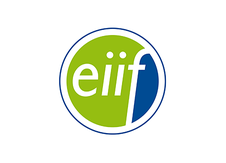Search eceee proceedings
Requirements engineering and morphological analysis of adaptive control strategies for flywheel energy storage systems in industrial applications
Panel: 4. Technology, products and systems
This is a peer-reviewed paper.
Authors:
Raoul Laribi, University of Stuttgart, Germany
Yijun Lu, University of Stuttgart, Germany
Darian Andreas Schaab, University of Stuttgart, Germany
Christian Dierolf, University of Stuttgart, Germany
Alexander Sauer, University of Stuttgart, Germany
Abstract
Industrial applications including lifts, milling and lathing centers are characterized by dynamic short-term loads and recuperative braking. The integration of flywheel energy storage systems (FESS) reduces the installed power of new machines and buildings and can increase energy efficiency. Benefits and drawbacks as well as plug and play requirements for the integration and control of FESS are presented in this paper.
The requirements are weighted by six stakeholders and then analyzed in order to identify crucial system parameters. Based on this prioritization, a morphological analysis is conducted that leads to generic solutions for three industrial applications.
The analysis shall facilitate the implementation in real applications, saving the company time and money by avoiding costly controller tuning. Therefore, adaptive control strategies aiming for smoothed load profiles and an ameliorated energy efficiency using FESS are thoroughly investigated. The proposed analysis enables further research in terms of system modelling as well as control strategies and stability.
Downloads
Download this presentation as pdf: 4-057-20_Laribi_pre.pdf
Download this paper as pdf: 4-057-20_Laribi.pdf














